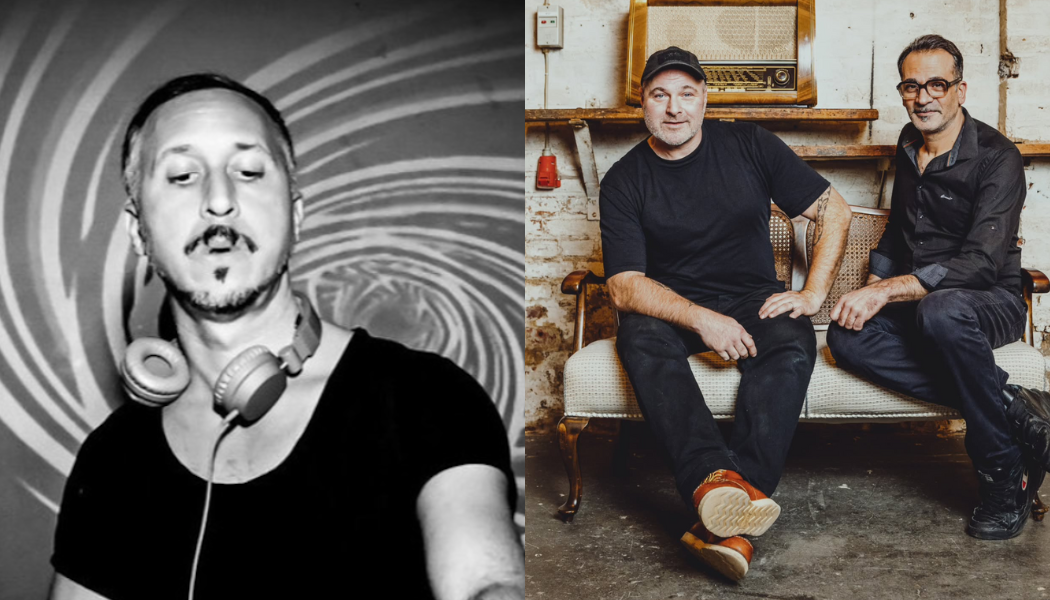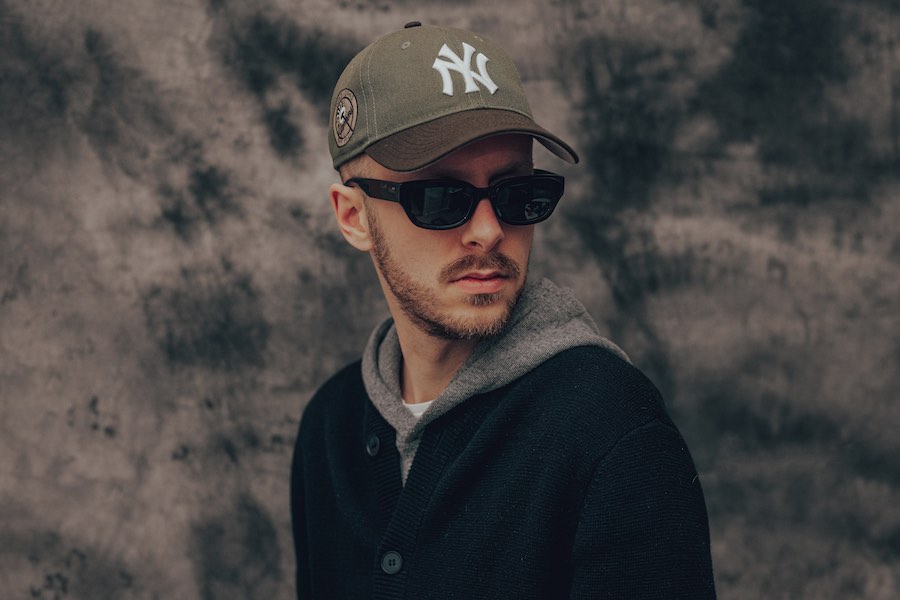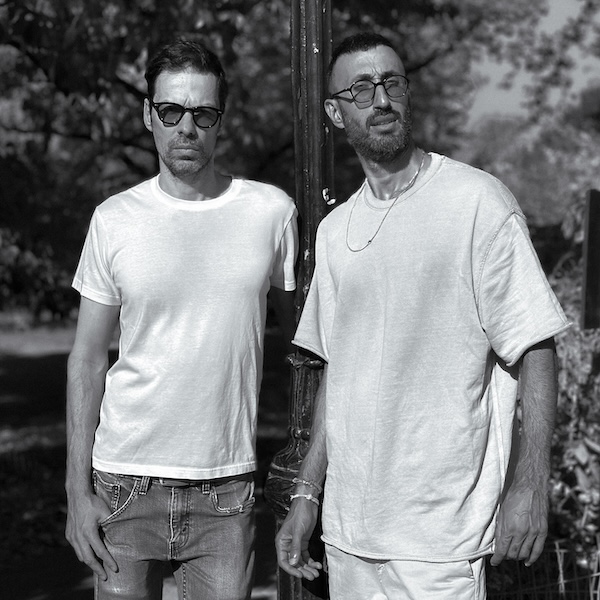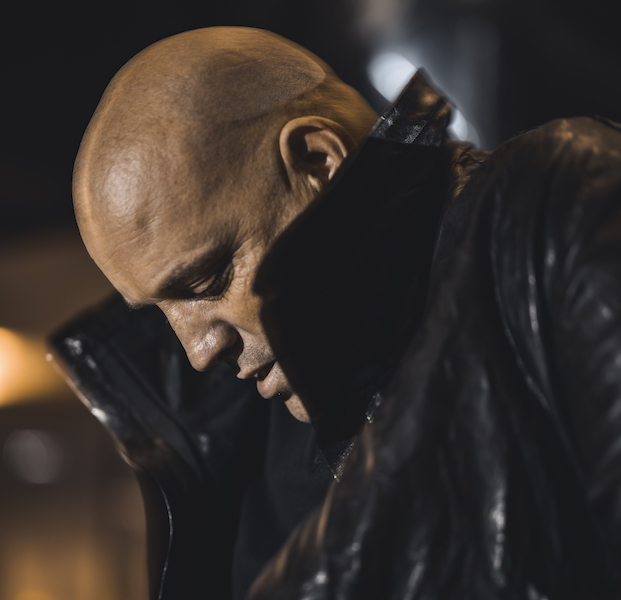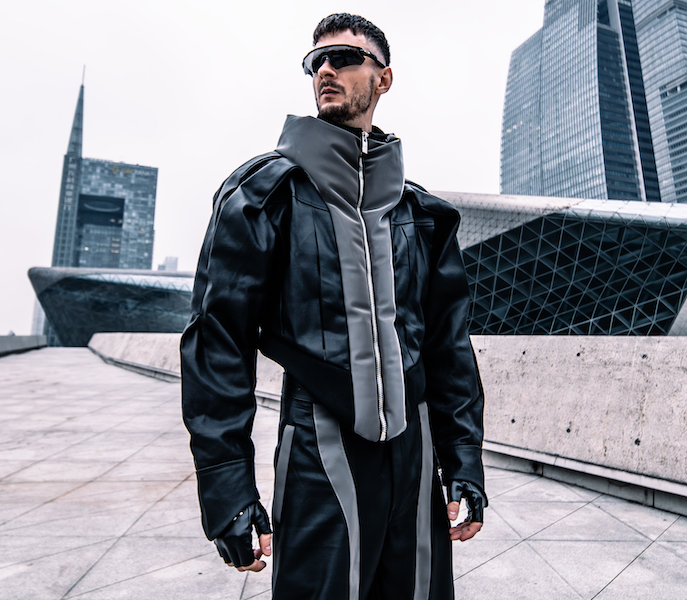After a short hiatus, House Of EFUNK records is back with an incredible selection courtesy of Detroit’s masterclass musician, songwriter, producer and talk box aficionado Walter Howard aka Hazmat LIVE. Soul Clap were first wowed by Hazmat when he performed at their House Of EFUNK marathon party at Detroit’s TV Lounge as part of the Scott Groves Overdubs band where his talk box magic had on jaws on the floor.
Hazmat’s journey thru music has seen him collaborate with many impressive acts such as former Gap Band front man Charlie Wilson, the Four Tops, Amp Fiddler and he even made his way onto the 2016 Soul Clap album with a feature on “Synthesizer Girlfriend”. Soul Clap known for a long time that when the right piece of music came around they’d love to have his contribution on EFUNK records and this extraordinarily funky cover version of Sade’s classic No Ordinary Love hit it out the park!
Hazmat’s original “Reimagination” is a work of excellence that keeps the emotion of the Sade original intact with an energized deep reinterpretation complete with lush chords, deep pads, tropical mallets, and of course Hazmats signature harmonized talk box wizardry!
On remix duties, Soul Clap very own one half, Charlie rewinds us to an early 00’s groove with a version inspired by the many remixes of Ben Watt that shaped his musical sensibilities. Going deeper and deeper is Detroit originator Delano Smith who rubs the remix with his pristine late-night sonics. Then, finally blessing the release with yet another from Detroit its “Hijacked Records” own label boss, producer Antwon Faulker who raises the vibe and tempo for a prime time rendition of this tremendous tune!
We had the chance to speak with Hamza, about the EP, his career, and a lot more. Enjoy!
WWD: Where are you right now and how’s the day?
I’m in Detroit now, there’s been some inclement weather here. Snowed in, I’ve been working on some new material, I have a couple releases coming out. Then I’m tidying up this new software to mix and master with.
WWD: It would’ve been cool to have talked to you in your hometown in person. Where’s a good place to grab a drink and talk in your area?
There are a lot of great places in Detroit. I believe we have some of the best food, not only in America, but in the world! We have the almighty coney dog, from Coney Island – an experience you have to have when you come to Detroit, it’s a chili dog, with onions and mustard! If you’re in town for a drink, you gotta check out Spotlight, probably one of the dopest spots in Detroit.
WWD: Were you born and raised in Detroit?
I am a 100% Detroit native. Went to elementary, middle, and high school here. My blood is in this city. It’s totally entrenched in everything I do. We have a long lineage of very accomplished musicians in all kinds of creative genres that help to guide artists coming out of here. We’ve done a lot of ground breaking things in Detroit.
WWD: So much musical talent has come out of that city, what’s in the water ?
Detroit is a place where Gospel, Jazz, Techno, House, Deep House, Ghetto Tech, all started here. You can walk into a place, and they hear a band like the No Boundaries Quartet, then go right around the corner to hear somebody in the well of some really good blues, then go to the next corner and hear somebody who has legit RnB, a straight up jab going, you know what I’m saying.
WWD: Do you think that techno is the biggest sound to come out of Detroit or was Motown bigger?
Ah Techno is RIGHT THERE… BUT I’m actually gonna say Motown is the biggest sound to come out of Detroit. It was a catalyst for change in a different way than techno was. I think techno is something that’s been more expressive, and more global. But when ‘My Girl’ and all that stuff first hit, there had never been anything like it. The impact that Motown’s legacy had, laid the foundation for Techno, for Disco and all kinds of things.
WWD: For someone so used to gigging, the last few years must have been a bit of a struggle..
These past 2 years were brutal. Mentally, physically, spiritually, emotionally, they were brutal. This was a test of many different levels for me. It was rough, there were no gigs, you had to create your own experiences, so I started Saturday Night Sweatshop online, and it got a lot of love.
WWD: Growing up there a lot of music in your house? What songs do you recall from that time?
A LOT of Sly and the Family Stone, Luther Vandross. We listened to a gospel artist named Daryl Coley, and Technotronic. James Brown, Parliament. Rick James, a whole bunch of Prince, a MC Hammer, Me, and my sister got into that hip-hop pretty tough, it was a lot of Snoop Dogg, a lot of Dr. Dre, a lot of Wu-Tang clan. I was really starting to get into jazz with Miles Davis, Ella Fitzgerald, some of the legendary staples of jazz. I was never the same after listening to Chick Corea for the first time.
WWD: What was your first introduction to live performance?
At Detroit Open School. Once my teacher Dianna Kennedy figured out that I could play the piano, she would call on me and make me play in front of the whole school.
WWD: What was the first instrument that you picked up?
The first one was the drums. My mom bought me a smurf drum set and I beat the breaks off that thing. It was too much noise in the house, so I went to the back porch to play. I was 6 or 7 when I got my first keyboard. After that, nothing was ever the same.
WWD: Where were the first places that you played?
I played at Trapper’s Alley in Detroit with my first high school band. We later talked our way into getting a weekly residency at the Baker’s Keyboard Lounge in Detroit every Monday from open to close.
WWD: What other instruments do you play?
There was a time when I experimented with a lot of different instruments, trombones, trumpets, saxophones. I would get those metro books and learn how to play. There were some that I picked up, some that I kept with and some that I didn’t, but I would say right now I play the drums, keys, bass & guitar, and the Talkbox.
WWD: Would you say that being able to pick up a lot of different instruments and get a tune out of it, is like having a flair for language. If you can talk one of two languages, you kind of have an ear for others…
I would definitely say being able to convey your musical ideas with different instruments is a way to speak. A way to commune, definitely a language. You strum along and really say what you want to say. I tend to speak more from an electronic standpoint right now, more than acoustic.
WWD: You have toured with some amazing artists. What was it like touring with Amp fiddler?
We had such a good time touring, and it formed a lifelong friendship between us. He actually called me right before this. We went to Africa, to Tanzania and Uganda to drop the funk on them. Africa is definitely a landscape of mystery and wonder and it’s a beautiful place. I was the second keyboardist; he was the first and we would alternate between roles depending on where he’s at. I was a student of the great Amp Fiddler.
WWD: Kenny Dixon is a living legend. What did you work on with him. What was he like to work with?
The first time I met Moody, I’m actually brothers (not by blood) with his cousin, and he called me about doing a performance with him. He said, “you know my cousin, Kenny Dixon?”. I didn’t know who Kenny was at the time. He said to come check out the rehearsal. Kenny and I kicked it off immediately. He was headlining at Movement, and we worked on the show. As you know, Moody puts out a different type of performance, it was eclectic, it was out there. There were points where I was confused at what I was doing. I remember right before the show we were on stage, and he says “yeah actually I’m gonna do something different” so the whole show was impromptu.
WWD: What are the most important things to you in your studio?
My vibe. You have to be in a certain space, to create anything. I try to make sure my vibe is together. I like to use a combination of Reason & Ableton together. Combined they’re the ultimate DAW.
WWD: What do you love most – the Morg, the Korg or the Roland?
I’m gonna say the Roland. It’s been giving me some continuity. I have some vintage Korg machines here too, the EM-1, and ES-1. I like to use those too, they’re older but they really do kick. They have a nice, malleable sound. And of course, you can’t really beat the Moog sound.
WWD: In your productions would you say you have a Hazmat sound?
Being in the electronic world, sometimes doesn’t require such a lavish arrangement, so finding space in the groove with just a 4-bar loop and then finding where that sweet spot is in there has been inspiring to me. Knowing where to manipulate that space and add to a track and give it things that define what you hear in your heart. I like to use a lot of different textures and atmospheric sounds and samples. I like to create my own samples and do different things that give me a signature sound. The talk box I believe is something that adds a signature flare to my music when I incorporate it into tunes. My chord structure and the way I try to sonically take it into my journey- adds to what I’d call my sound. I think my sound straddles a very fine fence between techno and house. It’s like right on the edge of both.
WWD: How long have you been friends with Soul Clap?
I met Soul Clap back in 2016 in TV Lounge, we hit it off, had a good time, talked about doing some music casually. We did “Synthesiser Girlfriend”, then we did a show at Electric Pickle together and we also shot the music video for Synthesizer Girlfriend in Miami. House of EFunk in Detroit was the icing on the cake. It’s been a lot of fun working with these guys,
WWD: Tell us a little about your new EP?
Me and Lonely C talked about how we could take this project to the next level, so we reached out to the greatest remixers and producers in the game, Antwon Faulkner and Delano Smith and we put out these dope remixes to ‘No Ordinary Love’ along with my ‘Reimagination’ of it. Antwon put the steak on it, his mix is super dope. Delano’s mix is dark and moody and then Lonely C’s mix has got this real Shakey groove.
WWD: It’s a brave move to cover such an iconic song.
I always loved Sade’s music,‘ No Ordinary Love’ is a timeless classic and I wanted to reimagine it and put it in the electric world in a way it hasn’t been before.
WWD: As a stage performer, what is the format of Hazmat live? Tell us about your electro-impro?
I set up my drum machines and my keyboards so that they’re more jam oriented. Sometimes remix things right on the spot. You know, I’m feeling something different, I want to change the key, add a tweak, create something new on top. I’m more of a Jazz musician so being able to improv on the fly is something that’s very custom to me. I just want to be able to grab some different drum machines and some synthesizers and some bass modules or something and show up with an idea, then scratch that idea on the spot if the crowd is moving differently. and then create from there. I like to give the audience a fresh take, every show. Electric Improv is being able to draw from the energy around you and then create that music in the moment.
WWD: Do you have plans to take Hazmat Live on tour?
Yes, Hazmat Live is currently touring. We just did our very first international tour in the South of France.
WWD: What keeps you grounded?
Life, Love and Music keep me grounded. Life definitely can be up; it can be down. Music can be up, it can be down. Love can be up, it can be down, but if you’re able to find balance between all three of those things, for me, that keeps me levelled.
WWD: If you hadn’t been working in music all of your life, what do you think you might be doing today?
Honestly, I would probably either be a stripper or a chef. I lost a lot of weight and this body I got now, it’s gorgeous. I could get some money shaking my patootie back there if I need to. Lol. But for real I would definitely like to get into culinary arts I am really inspired by cooking and creating cuisines. It’s the exact same thing as doing music. If you add to much salt to something or your cymbals are too loud its gonna take away from the vibe of what you’re trying to create.


